Annual report to tenants and leaseholders 2024
Councillor Cutkelvin’s introduction

Welcome to this year’s annual report to tenants and leaseholders. It contains information to help you stay informed about what we have achieved together over the last year and some of our plans for the year ahead.
The cost-of-living crisis continues to present challenges to everyone, particularly those who are vulnerable. We are working hard to provide the support you need to manage your tenancies at this difficult time.
The current economic situation has also impacted on the money we have available to provide important services. I’m immensely proud of the way staff have responded, developing new, inventive ways of working to address the challenges they face.
In September last year, we undertook a new annual survey to find out how you feel about the services you’re receiving. It has proved invaluable in helping us understand what we are doing well and where we need to improve. I would like to thank everyone who took part for your important feedback. You can read more about the survey results and what we are doing to develop services as a result in this report.
The survey has confirmed the value of your input in helping us to deliver the best services possible. I firmly believe that by working together, we will be able to overcome any challenges that arise. Please take the opportunity to provide feedback whenever you can.
Information about our council homes
Leicester City Council is one of the country’s largest social landlords, providing homes and services to over 21,000 tenants and leaseholders.
We have around 19,000 council homes. Most of our stock is available to anyone who is eligible and assessed as being in housing need. We call these general needs homes. The table below shows the number of general needs homes we have with their number of bedrooms.
| Number of beds | House | Flat | Bungalow | Maisonette | Bedsit |
|---|---|---|---|---|---|
|
1 bed |
4 | 4,037 | 2,565 | 1 | 141 |
| 2 bed | 2,124 | 1,424 | 140 | 803 | 0 |
| 3 bed | 6,759 | 33 | 18 | 165 | 0 |
| 4 bed | 456 | 3 | 0 | 0 | 0 |
| 5 bed | 96 | 0 | 0 | 0 | 0 |
| 6 bed |
12 |
0 |
0 |
0 |
0 |
| 7 bed |
1 |
0 |
0 |
0 |
0 |
| Total |
9,452 |
5,497 |
2,723 |
969 |
141 |
We also work closely with HomeCome to provide affordable housing. HomeCome is a not-for-profit company created by Leicester City Council to assist the council in finding affordable decent homes for people in Leicester. HomeCome manages 276 properties, most of which are three and four-bedroomed family homes.
We have specialist accommodation for those with support needs. This includes 154 units of supported living accommodation and 389 units of sheltered accommodation for older people. We also manage a site with plots for 37 caravans for members of the gypsy and traveller community.
We have 1,788 leaseholders, the majority of these live in flats and maisonettes on our estates.
Right to buy sales
During 2023/24 we lost 205 homes through right to buy sales, compared to 329 in 2022/23.
New council homes
Due to the significant demand for council homes from those in need of affordable housing, we are continually looking to increase the stock of properties we have available to meet this need. In 2023 / 24 we built 12 new affordable homes and acquired 139 other properties.
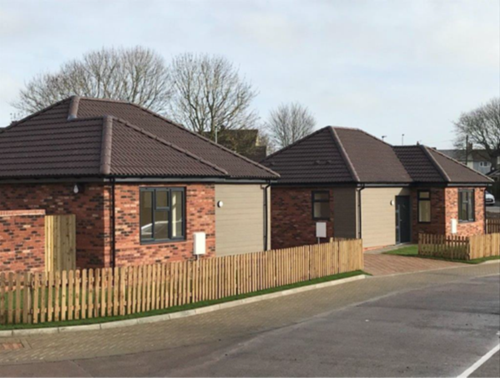
Council home rents
Your rent charge covers the cost of providing you with a home. This includes tenancy management, property management and repair services. Charges are also set for providing additional services to your home for example, communal lighting and door entry systems.
Leicester City Council rents remain the lowest of any tenure type in the city and when we compare these with other local authorities, our rents are amongst the lowest in the country.
The table below compares last year’s average weekly rent levels of council homes, with those of housing associations and the private rented sector.
|
Property type |
Council homes 2023/24
|
Housing association homes |
Private rented sector homes
|
|
Bedsit |
£67.66 |
£80.70 |
£116.54 |
|
1 bedroom |
£72.79 |
£89.82 |
£132.92 |
|
2 bedrooms |
£85.77 |
£93.82 |
£166.85 |
|
3 bedrooms |
£96.21 |
£99.49 |
£195.46 |
|
4 bedrooms |
£109.92 |
£118.60 |
£324.23 |
During 2023/24 we collected 98.54% of rent owned to us. On 31 March 2024, tenant rent arrears amounted to £1,724,846.
It is your responsibility to ensure your rent is paid on time. We have several ways you can pay your rent. The easiest way is to pay your rent online. If you’re struggling to pay your rent, please contact us as soon as possible on 0116 454 1007 or email [email protected].
Find out more about the payment of rent and contact details. Advice and support can also be found on our cost of living support page.
How we spend money
|
Service area |
2023 / 24 |
2024 / 25 |
|
Management and landlord services – this includes collecting rent, dealing with antisocial behaviour complaints and supporting tenants to maintain their tenancies
|
£33,297m |
£32,490m |
|
Repairs and maintenance – this includes completing day-to-day repairs reported by tenants
|
£28,387m |
£31,480m |
|
Capital programme – this money is spent on large projects to ensure our properties are up to standard, for example, rewires and boiler replacements.
|
£10,210m |
£10,860m |
|
Interest on borrowing – interested is generally paid on money we have borrowed to build new council homes. We get this money back over time when we start charging rent on our new properties
|
£11,004m |
£13,666, |
|
Charges for support services
|
£5,310m |
£5,604m |
|
Charges for general fund services - this is money we pay for other services such as grounds maintenance and pest control activities
|
£6,099m |
£6,267m |
All of the money from rents is reinvested into services for tenants or your properties.
Consumer standards
We are committed to providing homes which are of a high standard, providing a healthy and safe environment, supported by effective repairs and maintenance services which are available to access when you need them.
Safety and quality standard
Health and safety
When delivering and developing services, your safety is always our prime consideration.
The lead officer responsible for health and safety is Gurjit Minhas, head of service. Read more about the health and safety lead’s role. We have also recruited a new building safety manager who is responsible for overseeing work in relation to building safety.
If you have a concern about health and safety at your home, you can contact the health and safety lead by email: [email protected]
Gas safety
We have a legal duty to make sure all our gas appliances are checked every year. We have strong gas safety arrangements in place and during 2023/24 we undertook over 18,500 gas checks on our properties to ensure people are safe.
We will contact you when your annual gas safety check appointment is due.If you smell gas, you should immediately call Cadent (formerly National Grid). The freephone number is 0800 111 999. Cadent will deal with any report of a gas escape for free.
Fire safety
Fire safety is of great importance to us as a landlord.
We have policies and procedures in place to reduce the risk of fire. For example:
- Our assistant housing officers carry out regular fire inspections to properties with communal areas, such as flats, maisonettes, and houses in multiple occupation.
- All our buildings with communal areas have their own fire risk assessments
- People who may require help getting to safety are provided with a personal evacuation plan in case a fire starts.
- We have building responsible officers who ensure fire safety work is undertaken, where it is found it is needed
- We have a no-tolerance policy on items left in communal areas. These are removed if they are found.
- We now have sprinkler systems at our five high-storey tower blocks.
For 2024/25, we have set aside £500,000 towards work on fire doors and other fire risk work. In addition to this, we are investing in a new IT system to improve our management of work related to fire safety.
Electrical safety
We ensure, through our capital investment programme, all our homes meet the electrical safety standards.
All rewires and electrical upgrades are carried out to British standards. All electrical installations are tested periodically and, at 30 years, a decision is made whether to carry out a full rewire or a part upgrade of the circuits and smoke detection systems in our properties. During 2024/25 we expect to rewire 470 properties.
The five-yearly cyclical programme of electrical testing in communal areas also continues. This includes the installation of more energy efficient lighting in communal area lighting.
Water safety
Every three months we test and then treat the water in the district heating network. This is to ensure that the system is running correctly. The treatment is used to ensure that there is no build-up of unwanted properties, such as scale.
Tenants play an important role in helping to ensure water safety in their homes. This includes the cleaning of outlets, such as taps and showers, and reporting repairs, so that the water system can remain in good working order.
Asbestos safety
If undisturbed, asbestos is perfectly safe to remain in our homes. It is only when asbestos becomes damaged that safety issues arise.
We have an obligation to protect our tenants, employees and contractors from the harmful effects of asbestos, as far as reasonably possible. To do this, we ensure our properties are surveyed for asbestos when work is required or planned. These surveys are undertaken by appropriately qualified and trained staff.
When we establish there is a need to remove asbestos from a property, we take the necessary safety steps to do this, and replace the item with a non-asbestos product. No new asbestos-based products will be used in future building construction or refurbishment.
Asbestos inspections are also regularly undertaken for all our non-domestic areas, for example, communal areas in blocks of flats.
Lift safety
Where our properties have a lift installed, these are inspected every month by trained lift engineers.
The intercom within the lift is connected to our lift engineers helpdesk, which is operated 24 hours a day. If an unfortunate event happens and a person becomes trapped in a lift, they can immediately notify the lift engineers directly and staff local to the site will attend immediately.
Addressing damp and mould
We have robust reporting arrangements in place for tenants to report damp and mould issues in their home, through our repairs reporting service.
As part of our response to the issue, we have invested in recruiting new technical staff, creating a dedicated damp and mould repairs team, and improved remedial and preventative solutions are being used. We prioritise cases where damp and mould are found in a bedroom or if there is a child or vulnerable person in the property.
To find out more about the Council’s commitment to improving our housing stock, particularly in relation to damp and mould, you can view our new damp and condensation web pages, which provide advice and allows you to report damp issues.
As part of our continued commitment to provide and maintain dry, warm and healthy homes for our tenants we will be introducing a new damp, mould and condensation strategy.
Example of damp in property
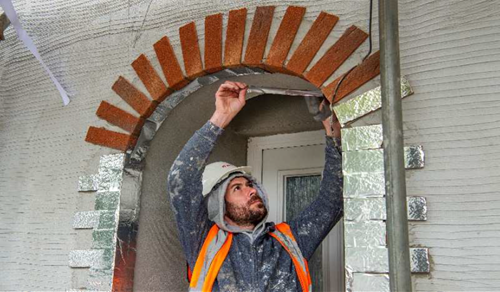
Damp treatment work taking place
Preventing rat problems
Housing officers have been working closely with the pest control team and the repairs service to address hot spots where there are problems with rats. A team has been set up to take immediate action to tackle the issue where we identify these hotspots in the city. Information has also gone out to tenants and residents to advise what to do to prevent rats having access to food and access to buildings.
It is important to report repairs, not to feed the birds or leave rubbish out. Rats need warmth, shelter and food, so taking away these essentials will deter them from coming to your neighbourhood.
If you see evidence of rats, contact the pest control team through the city council website.
Providing decent homes to those in need
More than 99% of our homes meet the government's decent homes standard.|
Programmed work |
Budget 2023 / 24 |
Budget 2024 / 25 |
|
New kitchens and bathrooms |
£2,000,000 |
£2,800,000 |
|
Boiler replacements |
£2,300,000 |
£2,500,000 |
|
Rewiring |
1,610,000 |
1,610,000 |
|
Re-roofing |
0 |
£1,000,000 |
|
Replacement soffits and fascias |
0 |
£150,000 |
|
New windows and doors |
£50,000 |
£50,000 |
|
District heating maintenance |
£500,000 |
£500,000 |
|
District heating metering |
£2,310,000 |
0 |
|
District heating - Aikman Avenue |
£455,000 |
0 |
|
Communal improvements and environmental works |
£200,000 |
£200,000 |
|
Disabled adaptations |
£800,000 |
£1,200,000 |
|
Fire risk work |
£500,000 |
£500,000 |
|
Safety works, including targeted alarms |
£100,000 |
£100,000 |
|
Loft insulation |
0 |
£50,000 |
|
Sheltered housing improvements |
£50,000 |
0 |
|
Affordable housing - acquisitions and new build |
£15,000,000 |
£15,000,000 |
|
St Matthews concrete estate work |
£200,000 |
£200,000 |
|
Total capital programme |
£26,075,000 |
£25,860,000 |
Examples of the work we undertook during 2023 / 24, to ensure our homes meet the decent homes standard, included:
- 135 new bathrooms
- 164 new kitchens
- 601 new boilers, and
- 502 properties had an electrical upgrade.
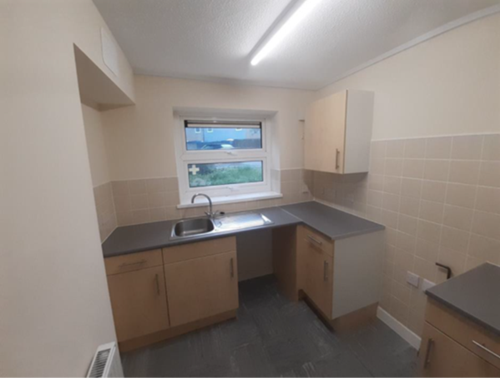
To maintain our homes and meet your priorities, in 2024/25 we are planning to increase the work we undertake. For example, we are planning to:
- fit 493 new kitchens and bathrooms
- replace up to 900 boilers
- replace 65 roofs
- replace UPVC soffits, fascias and gutters to 108 homes.
If you are on the planned maintenance programme, we will write to you and explain what’s planned and what happens next.
Responsive repairs
Responsive repairs are those reported by tenants when something breaks or stops working in their home, which we are responsible for fixing. During 2023/24, we completed 89,070 repairs to our properties.
Priority of repairs
To make sure that the most serious repairs are dealt with first, we have three levels of priority. During 2023/24, we completed 92.8% of emergency repairs within our 24-hour target. You can read more about the kinds of repairs that go into each priority, the timescales for each of these priorities and how to report a repair our housing repairs web page.
Wherever possible, our aim is to complete responsive repairs to your home at the first visit. This reduces inconvenience to you, saves time and money and reduces our carbon footprint. During 2023/24, 75.1% of repairs were completed at the first visit. Sometimes we are unable to complete repairs when we first visit if tenants are not at home for their appointment, or we need to order in specific parts to complete the work.
Communal area planned maintenance
During 2023/24 we continued with our programme of planned maintenance across our 1,035 internal communal areas. This programme enables the early identification of works needed and helps reduce the need for tenants to report repairs.
The repairs handbook
You can find information you may need when repairs are required to your home in our Repairs Handbook. The handbook also includes handy hints and tips for looking after your home while you are a tenant.
Adapted housing
It is important to us that our properties are accessible. This means tenants can remain independent and occupy their own home for as long as possible. It is also essential that we have a supply of accessible homes for those who might need them in future.
Adaptations in tenants' homes are only undertaken following an occupational therapy assessment. Council tenants do not have to pay for the adaptations that are recommended by an occupational therapist. They will be carried out if they are necessary and appropriate, reasonable and practical. If these criteria are not met, alternative solutions may be proposed.
If you feel that your council home needs adapting to meet your needs, you can contact occupational therapy contact and response on: 0116 454 1004
We keep a record of which properties have been adapted so we can allocate them to households on the Housing Register who need the adaptation, when the property becomes vacant. We have 2,292 homes that have been adapted in some way, of which 133 have been adapted for wheelchair users. In 2023/24 we carried out:
- 420 minor adaptations in our properties, such as the fitting of handrails and ramps
- 133 major adaptations, such as the fitting of level access showers and stair lifts.
Due to the increasing demand for adaptations in tenants’ homes, the budget for this work has increased from £800,000 in 2023/24 to £1.2 million in 2024/25.
All new homes that we develop are built to the Lifetime Homes Standard, so that they are adaptable to match a lifetime’s changing needs. We are also developing an adaptations strategy to help us ensure that we are able to assist those in need of adaptations as best as possible.
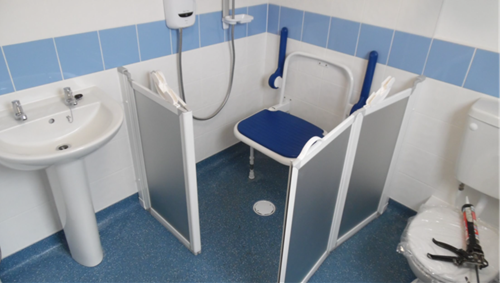
Climate change and decarbonisation
Climate change is one of the most serious threats facing the world. We are committed to tackling this issue. Leicester City Council declared a climate emergency in February 2019. Our ambition is for Leicester to become ‘carbon neutral’ by 2030 or sooner.
We have been working towards improving the environmental impact of our homes for many years and, during this time, we have significantly reduced their CO2 emissions. This has been achieved by window replacements, new central heating installations, new energy efficient boilers, internal and external wall insulation, roof insulation, and the fitting of solar panels.
As examples of this work, in 2023/ 4:
- all replacement boilers fitted had an A grade energy efficiency rating.
- we installed loft insulation in 54 properties.
- we started a programme of fitting meters into our properties connected to the District Heating network to enable tenants to better control their energy use and save money on these bills. It is estimated that tenants and leaseholders can save between £354 and £998 a year, (depending on their property size) on energy bills, as a result of these meters being fitted.
- The homes being built as part of our current housebuilding programme have been designed to maximise energy efficiency.
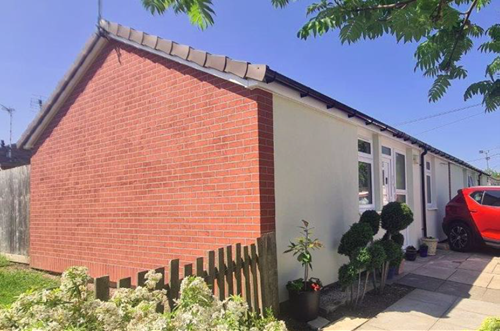
Find out more about the Leicester Climate Emergency Strategy.
Transparency, influence and accountability standard
We are committed to treating our tenants and leaseholders with fairness and respect. We work to deliver our services in line with the council’s five values: confidence, clarity, respectfulness, fairness and accountability. Find out about our vision and values.
We recognise and value the diversity of our tenants and leaseholders. We develop and adapt services to meet the needs of those who require them and to ensure that they are provided in a way that is accessible. We also work to meet the commitments in the Council’s equality charter.
Housing information for tenants and leaseholders
Information about all Leicester City Council services is published on our website. We also use social media to update people on services. One of the ways we do this is through Your Leicester, an email newsletter that keeps you up to date with news, services and events in Leicester. Find out how you can register for Your Leicester and our other newsletters.
On the housing pages of the Leicester City Council website, we publish information on a wide range of housing related topics, such as applying for a council home, managing your tenancy, paying your rent, reporting repairs, support for private tenants, landlords and leaseholders, help for homeowners, and our work to tackle homelessness and empty homes. Find out more about our housing services.
Leicester City Council is committed to making its websites accessible.
Read the council’s online accessibility statement.
Information about how we are performing as your landlord is contained in this annual report. However, we want to improve the information we provide to you about our performance. We will be developing a specific page on our website with key performance information that will be updated regularly.
Contacting us
We have a wide range of ways that you can contact us and we have developed our IT systems so you can request a wide range of services online, 24 hours a day, 365 days a year. Information about all the ways you can contact us can be found at Contact us (leicester.gov.uk)
Listening to tenants and leaseholders
Your views are important to us. By letting us know what you think, you can play a valuable role in developing services and making sure they are accessible and meet the needs of those who require them. By being involved, you can take an active part in shaping the services you receive.

Our current engagement structure enables tenants and leaseholders to be involved in a range of activities, such as:
- The tenants’ and leaseholders’ forum
- Local tenant and resident associations
- Estate inspections
- Responding to surveys, for example through our annual survey and following the completion of a repair
- Having your say on proposed improvements to estates.
Find out more about our approach to the consultation.
Examples of involvement activities that took place in 2023/24 include:
- Supporting local tenant and resident associations
- Consultation with 350 households when developing a buildings safety resident engagement strategy for our five high-rise buildings in the city.
- Local consultation activities to identify projects to be undertaken through our £200k environment and communal area improvement fund.
- Consulting the tenants’ and leaseholders' forum on the proposed changes to rents, service charges and how we intend to spend our money during 2024/25.
- Tenants and leaseholders have been involved in the development and implementation of plans to fit meters in properties with district heating
- Engaging with tenants who are in rent arrears to receive feedback on the services they receive
- Giving us compliments when we have done something well
- Surveying households to receive feedback on recent repairs completed.
One particular success has been working closely with tenants on the New Parks estate to support setting up community rooms at the Burns Flats. The housing repairs service refurbished the community rooms at Crayburn House and the tenancy management service arranged for the rooms to be handed over to the local tenants and residents group. The group has started providing drop-in services for the local community. An after-school club is available for local families to use and the local housing officer runs a housing surgery, where people can pop in to discuss any housing issues.

Leicester City Council’s leaseholders have their own particular concerns and issues, some of which are different to those of our tenants. We have a dedicated leaseholder team to make sure they receive a service which meets their needs. We have a leaseholder forum in place, where leaseholders can come along to have their say on the services they receive, identify areas for improvement and be part of the development of new services.
Although we have involvement and engagement opportunities in place, we know this is an area we want to improve and develop. Over the next 12 months we will be engaging with tenants and leaseholders across the city to find out how people want to be involved. From this work, in partnership with tenants and leaseholders, we will develop a new engagement strategy from which a new involvement structure will be developed.
If you would like to be more involved in helping to shape the services to tenants and leaseholders please let us know at please let us know.
Complaints
We aim to provide the best possible services, within the resources available. However, we know that sometimes things go wrong and if this happens tenants and leaseholders can make a complaint.
We have a complaints procedure in place that is designed to meet good practice stated by the Housing Ombudsman.
When we receive a complaint we aim to investigate this as quickly as possible, put things right if things have gone wrong and learn from this. In 2023/24 we received 638 complaints, of which 115 went through to the second stage of the complaints procedure. The highest number of complaints received were in relation to repairs, customer service and how reports of anti-social behaviour were dealt with.
Find out more about our complaints procedure
After your complaint has been fully investigated through our complaints procedure, if you remain unhappy with our response you have the right to ask the Housing Ombudsman to carry out an independent investigation.
Neighbourhood and community standard
We are committed to working together with you to keep your neighbourhood and communal areas clean and safe.
Wherever necessary, we will work in partnership with other agencies and service areas to meet your needs and achieve our aim of making estates somewhere you are proud to live. We have established working relationships with the Leicester Safer Partnership Board, the city’s housing associations, the emergency services, local businesses, tenants and residents’ associations, the voluntary sector and a wide range of council departments.
We have developed a policy to let you know what you can expect from us in terms of maintaining your neighbourhood View Maintaining and Improving Neighbourhoods Policy (PDF).
Tackling antisocial behaviour
Increasingly, we have seen more complex anti-social behaviour cases. The Council has a specialist team that investigates and resolves these issues. The team has close links with housing officers and the police. Where it is determined that tenants have caused anti-social behaviour, we will deal with this as a breach of tenancy conditions. Support is available for victims of anti-social behaviour whilst cases are being investigated and resolved.
We encourage people to come forward and report ASB at the earliest opportunity. We are here to help and by coming forward early it allows officers to engage with all parties to iron out and manage issues before they begin to escalate.
Find out more about our approach to addressing anti-social behaviour and how you can make a report.
You can also use the ‘Report it Form’ on all devices by scanning the QR code below.

Domestic and sexual abuse
Domestic abuse can happen to anyone. When it does, we are committed to working with all relevant agencies to support victims to remain in their own home if it is safe to do so, or access alternative accommodation and support.
Leicester City Council provides a dedicated support service for victims and survivors of domestic and sexual abuse.
If you would like to know more, please look at our dedicated domestic and sexual abuse web pages.
Communities and community space
Creating communities is about more than housing; it means cleaner, safer, greener neighbourhoods in which people have confidence and pride.
To help achieve this, we consult with tenants and leaseholders to find out their concerns and use the environmental and communal areas fund to make the improvements needed. Proposals for the fund which address crime and disorder are a top consideration when decisions are made on work to take forward.
Last year we spent £200,000 from this fund, improving neighbourhoods across the city in all housing areas. These improvements included:
- The replacement of planters and installation of additional bollards on Hockley Farm Road
- Installation of metal gates on Flora Street
- Grounds maintenance work around Portmore Close
- Improvements to the front of communal blocks along Thurncourt Road, Flamborough Road and Thurncourt Gardens.
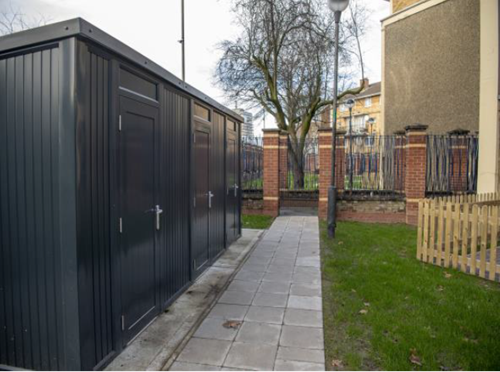
Find out more about our Public Realm Improvement.
The Let’s Get Together programme is a Leicester City Council initiative, led by public health, to promote social inclusion (the ability for everyone to participate in their communities). We use our neighbourhood centres and libraries as a focal point for activities to help people meet new friends, learn activities and improve their mental and physical wellbeing. The programme includes free activities which are available to anyone living in the city, including:
- chatty tables where you can talk and engage in activities like chess and jigsaws
- health walks, aimed at getting your heart rate up and improve general health
- Sociable strolls, cultural walks around the city, which take place once a month
- Let’s get growing – cultivating plants and flowers
- Arts and crafts sessions
- Over winter, the libraries offer ‘warm welcome’, where the buildings are opened up so people can go in and keep warm.
You can find out more about these and other activities at the Bringing People Together web page.
Creating jobs and supporting the local economy
We make a significant contribution to the local economy, placing contracts with local businesses and developing work opportunities for those who need help with employment.
- Our neighbourhood improvement scheme continues to help the long-term unemployed by providing pre-employment training and a period of work experience.
- We provide craft apprenticeship opportunities each year and have the largest apprenticeship programme in the council.
- We run a women in construction programme to provide support to women who want to enter the construction industry
- We offer work experience to school students, graduates, and ex-offenders.
- We also work to deliver improved job opportunities for those facing homelessness and those leaving care.
Tenancy standard
This standard sets out how we must allocate, let and manage our homes fairly and effectively.
Allocations
We have a limited number of homes available and the demand for them is high, so we must ensure they go to those with the greatest need. We make sure this happens through our Allocations Policy.
Leicester City Council’s housing is allocated from our housing register through a choice-based lettings scheme called HomeChoice. If you are eligible to join the housing register, HomeChoice allows you to choose and bid for the vacant properties you want, that are suitable for your needs.
- On 1 April 2024, 6,682 households were on our housing register for rehousing.
- 3,876 households on the housing register needed rehousing due to their current overcrowded situation. This is the most common reason for households joining the housing register and accounts for 58% of all households on the register.
- In 2023/24, we let 669 council homes to new tenants through the housing register.
Find out more about our housing register and HomeChoice on our Apply For Housing webpage.
Sheltered housing
We manage 14 sheltered housing schemes across the city, enabling older people to live as independently as possible in a safe community setting. Find out more about our sheltered housing, including how to apply.
Conditions of tenancy
As a tenant, you have responsibilities and rights relating to your tenancy, including repairs, gardens, garages, decoration, access, nuisance, harassment and anti-social behaviour. You can read your conditions of tenancy here.
Mutual exchanges
Council and housing association tenants are able to swap properties with each other. Only secure council tenants have the right to exchange properties. You can register with HomeSwapper to increase your chances of exchanging homes. HomeSwapper is the UK’s largest mutual exchange service for council and housing association tenants looking to swap homes. Registering for a mutual exchange is free as the council pays for all tenants to be able to use the HomeSwapper scheme. Find out more about mutual exchanges here, including how to register with HomeSwapper.
Overcrowding and under-occupation
Overcrowding has a detrimental effect on people’s physical and mental health. We are continuing the work within our overcrowding reduction strategy to reduce the number of our tenants who are experiencing significant levels of overcrowding in their current accommodation. This work includes:
- the introduction of a new Band one award on our housing register for those experiencing critical overcrowding. As a result of this there are now fewer critically overcrowded households on the housing register. In 2023/24, 72 households were rehoused as a result of this change.
- We have introduced a scheme called Easy Move, which provides incentives for people whose homes are too big for them. This enables them to downsize to something smaller through a mutual exchange. Living in, and running, a smaller property can save money as well as releasing properties for larger households to move into. In 2023/24, 18 households used the Easy Move service. If you are a social housing tenant and you have more bedrooms than you need, you might qualify for help from the Mutual Exchange Easy Move scheme. If you are interested in the scheme, please email [email protected] with your name, address and contact details, and a member of our team will contact you.
In the coming year, we will continue to maximise the opportunities to develop new social housing which meets the needs of both overcrowded and under-occupying households.
Management of empty properties
It is important that, when our homes become vacant, they are made available to someone in need as soon as possible.
We believe each of our void properties prepared for letting should be safe, clean and in a good state of repair in order that tenants can begin to enjoy their new home straight away. You can read more about the void letting standard here.
Helping our tenants remain in their homes
We want to do everything we can to support tenants to maintain their tenancy and prevent unnecessary evictions. Our priority is to enable tenants to live well and access help and support when they need to. To help us achieve this there are a number of important support services that tenants can use:
- We have a sensitive lets and tenancy support procedure which helps to identify suitable housing for tenants who are vulnerable and have complex needs. This is to ensure tenants have the right support in place as soon as they move into their new home
- Through our property lettings service, a range of support, advice and help is provided to individuals and families before they move into their new homes to prepare them for managing their tenancy.
- The income management team provides support to tenants to apply for welfare benefits, assistance with maximising their income, and developing affordable repayment plans for those in rent arrears
- Supporting tenants and residents (STAR) – provides housing support to council tenants in Leicester
- Our tenancy management service makes welfare visits to vulnerable tenants to identify additional support they may need
We have introduced a number of initiatives to develop the support we are providing:
- The housing officer role is being developed to provide greater support to our tenants who we know are facing more complex issues.
- We have introduced an ‘enhanced letting standard’ for tenants who are leaving care or who have been homeless. Eligible new tenants coming through the ‘leaving care’ and ‘homeless’ pathways into our properties will benefit from the higher letting standard, which also provides a fully decorated (painted) property.
- We are also working with adult social care to develop more supported housing options for tenants with complex needs, who require long term support.
- Some people may not have all the skills needed to manage a new tenancy. To help address this need, we have created 11 'trainer accommodation' units. This provides people with 12 months accommodation in a supported environment. The support will include providing assistance with tasks, such as budgeting, maintaining a home, shopping and cooking, accessing community services, training and education, and keeping healthy. The aim of the project is to give people the skills and knowledge to be able to manage a home when a longer-term council tenancy is granted.
- Working in partnership with public health and the charity Turning Point, we have developed a new support team within out STAR service to assist tenants experiencing drug and alcohol issues to support recovery and enable them to maintain their tenancies. The team is made up of seven housing-related support workers. They support with a wide range of issues relating to managing a home, focusing on helping service users access drug and alcohol treatment and mental health support services to improve their physical, emotional and mental wellbeing.
- To build on this valuable work, we are currently developing a 10-year housing accommodation strategy for people with multiple complex needs to help ensure that they get the support they require.
In 2023/24:
- seven percent of our new tenancies were sustained for over a year
- our STAR tenancy support service assisted 439 vulnerable households to maintain their tenancies
- There were just seven evictions for rent arrears, mainly households who failed to engage with us and the support available to them. There were no evictions for antisocial behaviour.
- The income Management team helped 572 vulnerable households to access the government's housing support fund. This was money allocated to help people during the cost-of-living crisis. On average, households received more than £800 from this fund. In addition to this, the income management team supported tenants to apply for discretionary housing payments. A total £201,403 was paid in awards for all qualifying council tenants.
Our performance and improvement plans
Performance
In April 2023 the Regulator of Social Housing bought in a new requirement that all social landlords across the country must undertake an annual tenants’ satisfaction survey. We undertook our first annual survey of council tenants in Leicester in the autumn of 2023 and the results of this were:
|
Satisfaction measure |
% satisfaction |
|
Proportion of respondents who report that they are satisfied with the overall service from their landlord. |
51.2 % |
|
Proportion of respondents who have received a repair in the last 12 months who report that they are satisfied with the overall repairs service. |
61.1 % |
|
Proportion of respondents who have received a repair in the last 12 months who report that they are satisfied with the time taken to complete their most recent repair. |
61.0 % |
|
Proportion of respondents who report that they are satisfied that their home is well maintained. |
51.9 % |
|
Proportion of respondents who report that they are satisfied that their home is safe. |
56.8 % |
|
Proportion of respondents who report that they are satisfied that their landlord listens to tenant views and acts upon them. |
40.2 % |
|
Proportion of respondents who report that they are satisfied that their landlord keeps them informed about things that matter to them. |
46.8 % |
|
Proportion of respondents who report that they agree their landlord treats them fairly and with respect. |
57.4 % |
|
Proportion of respondents who report making a complaint in the last 12 months who are satisfied with their landlord’s approach to complaints handling. |
26.3 % |
|
Proportion of respondents with communal areas who report that they are satisfied that their landlord keeps communal areas clean and well maintained. |
48.7 % |
|
Proportion of respondents who report that they are satisfied that their landlord makes a positive contribution to the neighbourhood. |
41.4 % |
|
Proportion of respondents who report that they are satisfied with their landlord’s approach to handling anti-social behaviour. |
39.2 % |
From April 2024, all social landlords must also report key performance information to the Regulator of Social Housing.
Our performance against these key indicators for 2023/24 was:
|
Performance indicator |
Results |
|
Proportion of homes for which all required gas safety checks have been carried out.
|
99.8% |
|
Proportion of homes for which all required fire risk assessments have been carried out.
|
99.5% |
|
Proportion of homes for which all required asbestos management surveys or re-inspections have been carried out.
|
89% |
|
Proportion of homes for which all required legionella risk assessments have been carried out.
|
95.6% |
|
Proportion of homes for which all required communal passenger lift safety checks have been carried out.
|
100% |
|
Number of antisocial behaviour cases opened, per 1,000 homes.
|
76.6% |
|
Number of antisocial behaviour cases that involve hate incidents opened, per 1,000 homes.
|
2.1% |
|
Proportion of homes that do not meet the Decent Homes Standard.
|
0.5% |
|
Proportion of non-emergency responsive repairs completed within the landlord’s target timescale.
|
75.6% |
|
Proportion of emergency responsive repairs completed within the landlord’s target timescale.
|
92.8% |
|
Number of stage one complaints received, per 1,000 homes.
|
35.3% |
|
Number of stage two complaints received, per 1,000 homes.
|
5.9% |
Going forward, we will be comparing our performance with other social landlords across the country and learning from good practice, which we will report in future annual reports. Also, as part of our engagement work, we will be asking what additional performance information tenants and leaseholders would like to know about. From this we will be developing more effective communication to regularly report on our performance to you.
Our improvement plans
In January 2024 we undertook a self-assessment to find out where we met the Regulatory of Social Housing’s new Consumer Standards and to identify the areas where more work was required. Alongside this we have also identified areas for improvement following the tenant satisfaction survey results. We know priority areas to develop are our approach to tenant engagement and learning from complaints. Key actions we are taking forward in our improvement plan are:
Health and safety standard
- Collect up-to-date property information through a stock condition survey
- Develop an asset management strategy to inform our planned property improvement programme
- Implement a new IT system to improve the management of fire safety risks
- Review housing online to ensure it meets the needs of tenants when reporting repairs.
Transparency, influence and accountability standard
- Deliver customer care training to staff
- Develop a communication strategy to keep tenants and leaseholders up-to-date with information
- Develop an engagement strategy
- Review information on our website for tenants and leaseholders
- Implement a structured approach of reviewing our policies and procedures
- Undertake our 2024/25 annual tenant satisfaction survey
- Provide complaint handling training for staff
- Review our approach to complaint handling and learn from this.
Neighbourhood and community standard
- Develop a local social housing forum with other social landlords in the city to discuss social housing priorities
- Review our anti-social behaviour policy
- Develop a domestic abuse policy.
Tenancy standard
- Review our mutual exchange procedures and information provided to tenants
- Undertake a review of how we allocate homes that are designated, designed or adapted to meet a specific need to ensure our approach is fit for purpose
- Review training to officers on tackling tenancy fraud.